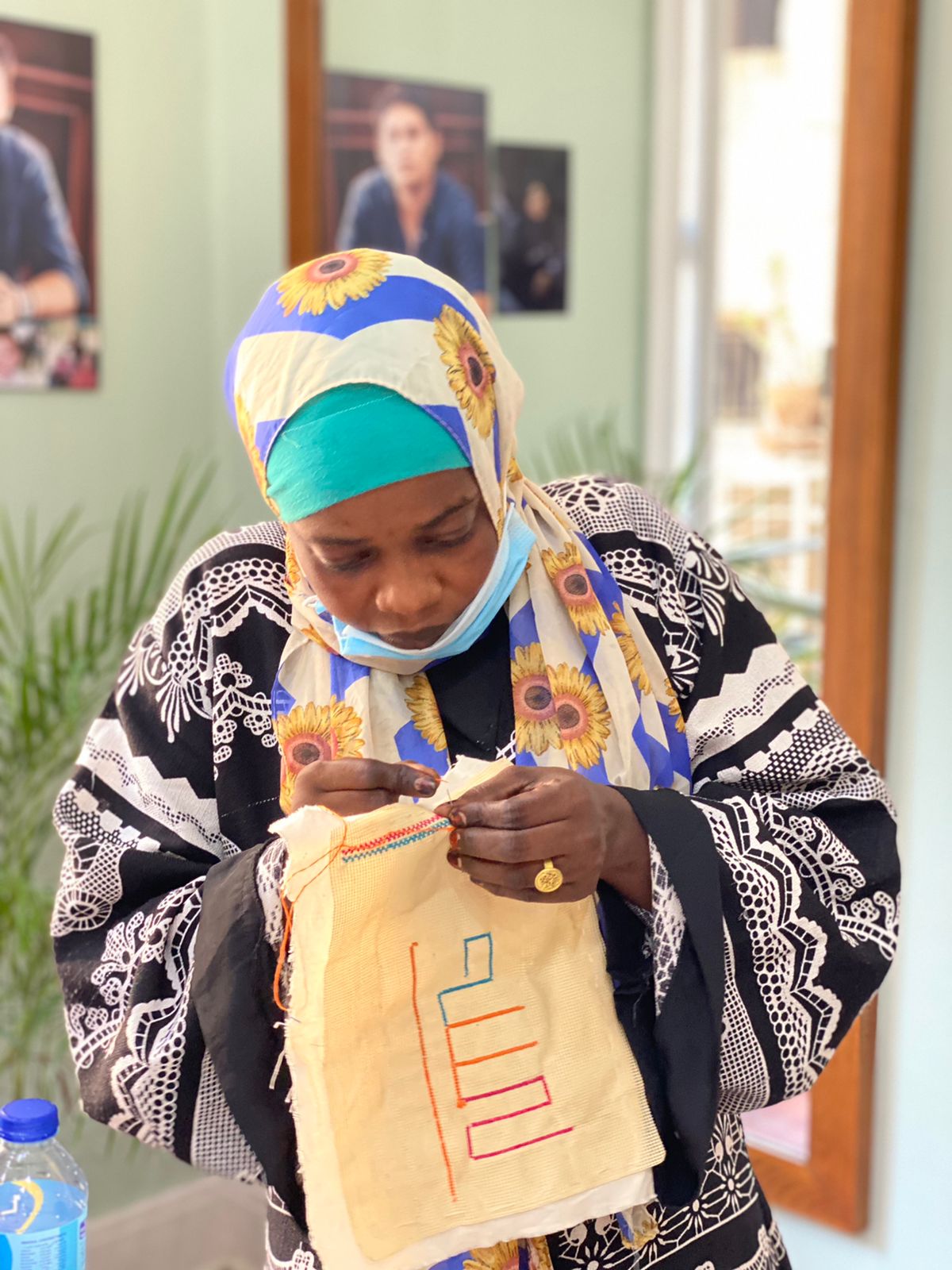
“We work with women who have suffered tremendously and lived through the horrors of war. They’ve lost everything; their families, their livelihood, the colors and smells of their countries, their identity, their food…”
The raw emotion in Margarita Andrade’s voice is palpable, and it’s clear that she is a woman on a mission: a mission to support women experiencing hardship.
Andrade is the co-founder of Malaika Linens and Threads of Hope along with Goya Gallagher. While the former is a linens factory and Zamalek-based shop, the latter is a social enterprise designed to support underprivileged women in Egypt and refugees and provide them with a glimmer of hope during dark times.
Established in 2019, Threads of Hope provides embroidery and craft training programs for women to support them in pursuing self-employment opportunities and enrich their lives, but it offers so much more than that.
Andrade wanted to offer these women as safe a space as possible by working hard to make the training premises more than just a workspace; rather, a home away from home.
“We work with underprivileged women who live in very poor, overpopulated areas where there is not enough space or light between buildings, they are often harassed in the street, and they don’t feel safe in their neighborhoods. We think they deserve the best: the most beautiful spaces, the kindest trainers, and all the protection and inclusion possible,” Andrade explains.
View this post on Instagram
She adds that these refugees escaped war zones; the trauma causes them to perpetually feel scared that something bad is about to happen, and there is no existing support group because they live in different areas depending on their income levels. It was why downtown Cairo was chosen as a location for the training premises due to its accessibility through multiple metro stations and lines.
The training space was decorated with the intended aim of providing a getaway from the negativity these women experience in their daily lives: by offering lots of light and color, high ceilings, and wooden floors.
As of October 2021, there are more than 267 thousand registered refugees and asylum-seekers residing in Egypt, and almost half of them are women and girls. These refugees are usually from war-stricken or occupied countries such as Iraq, Syria, and Palestine, as well as several African countries such as Sudan, South Sudan, Eritrea, and Ethiopia.
A Holistic Approach
However, Andrade explains that training these women and providing them with self-employment opportunities still isn’t enough, and a more holistic approach addressing overall wellbeing and quality of life is needed to cater to their different needs, both as individuals and as mothers.
View this post on Instagram
An upcoming project for Threads of Hope is being implemented with food and nutrition experts to help improve the nutrition of the trainees by studying the cuisine of their home countries, to replicate similar dishes in Egypt.
The experts also research whether these women eat on a daily basis because many cannot, and neither can their children. Threads of Hope attempts to help fulfill this need by providing the trainees with a hot meal during training days.
“It’s important to understand the need for very good nutrition. In the vast majority of cases, people think bad food is cheap, but we want to make it clear that it’s not cheap; it’s very, very expensive because you will get sick, you will not be able to see a proper doctor, and it could become chronic. The same applies to children: a lot of organs, including the brain, will not develop properly if the consumed food is not good,” she explains.
View this post on Instagram
With that in mind, the project team is striving to provide the women with a booklet of healthy recipes for dishes that are both affordable and easily available in Egypt, in addition to teaching each other recipes within the training space to share these dishes. This is particularly meaningful because, as Andrade puts it, one’s local cuisine could be construed as part of one’s identity.
In doing so, they realized a lot of the women in the training program were illiterate, which drove Andrade to think of her next venture: a literacy program offered during training hours, in addition to a small library for the trainees as well as their children, where books could not only be borrowed but also kept, in order to help “plant a seed in their minds.”
A True Definition of Inclusion
Running Threads of Hope is undoubtedly hard work, but it’s clear that Andrade finds it rewarding beyond words. One of the factors that motivate her to push further is the solidarity that builds once trainees from different countries attend a training course together.
She explains that at the beginning, the trainees from Africa and from Egypt would stay apart, almost like they were afraid of each other, until little by little, they became one unit.
View this post on Instagram
“It’s very touching when we read [feedback] reports from the trainees and know that they felt like they were in a place where they are protected, they are heard, they are loved, where there is no hierarchy, where we are all one and everybody is the same; to read: ‘it’s the first time I’m not doing a humiliating job or the first time people don’t see the color of my skin’,” she says.
One of the many inspiring stories at Threads of Hope is that of Martha, a woman from South Sudan who was struggling to pass the embroidery training course, but Andrade felt like she needed an extra push and the two women sat down to understand how to help her succeed.
It turned out that the challenges Martha was facing were due to injuries to her arm and hand from getting shot in a war zone back home. Andrade then provided her with a special cushion to rest her injured arm, and Martha passed the course with flying colors.
View this post on Instagram
Her perseverance was so inspiring, that Threads of Hope will release a new collection titled The Martha Collection, a well-deserved commemoration of her efforts.
A Safe Haven that Deserves to Grow
Andrade’s endeavor is an inspiring reminder of the importance of gratitude and giving back to others when there is a capacity to do so.
When asked about what her dream is for Threads of Hope, her eyes light up, filling with endless possibilities. She hopes to be able to finance more holistic projects and training courses to support more women in need.
“The world is in a horrific situation economically speaking, and one cannot afford to spoil one’s self, so imagine what the poor are going through. One has to bring them in and provide them with employment. The importance of giving people opportunities to make a living, I think it’s a moral duty for those who can afford it,” she adds.
View this post on Instagram
Through her projects, she strives to give these women a glimmer of hope that not every moment in their life has to be difficult.
“I want them to know that there is a moment when there is no anxiety and you don’t feel threatened; you feel happy, you feel that there is hope, that you matter, that you can make beautiful things, that you can wake up in the morning and say ‘I’m going to work,’ and that there is a way out where you are in a place that you deserve to be.”
For more information, visit the Threads of Hope Instagram and Facebook accounts.
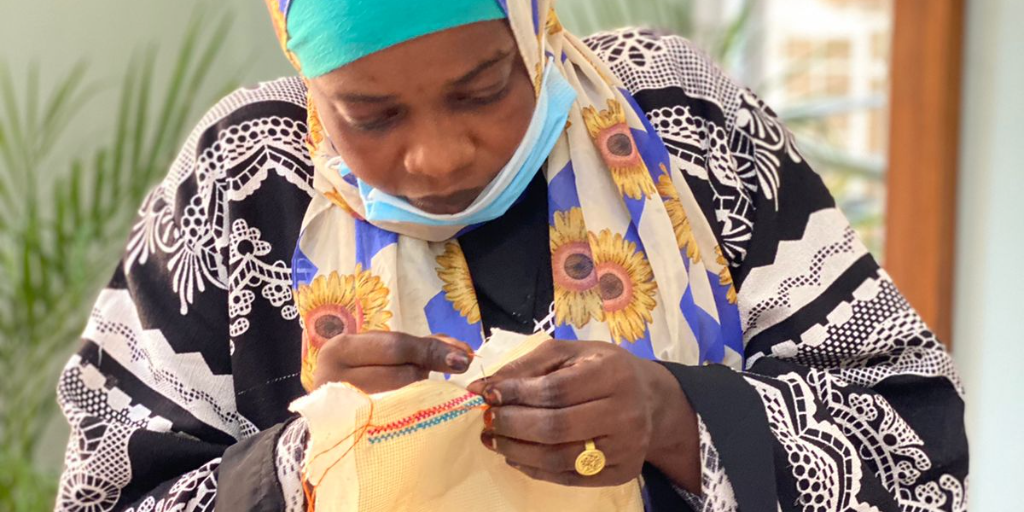

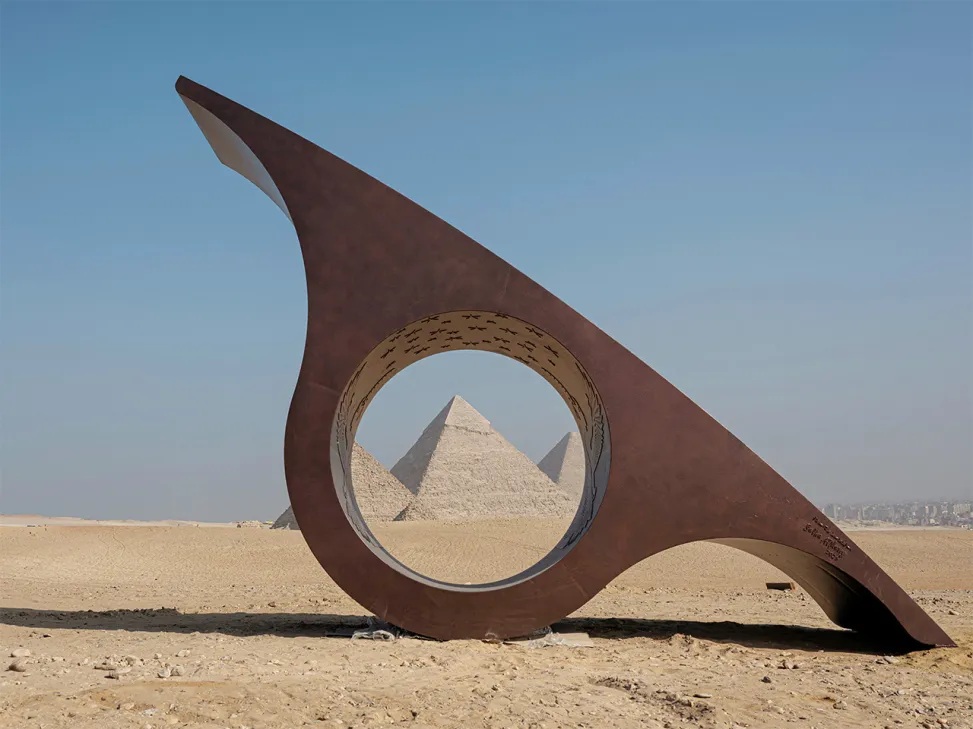


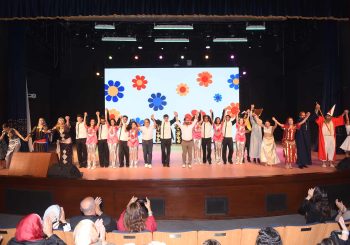
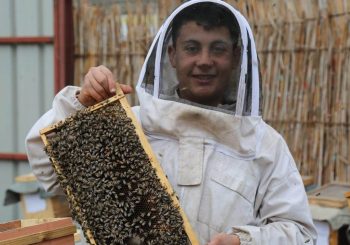
Comments (0)